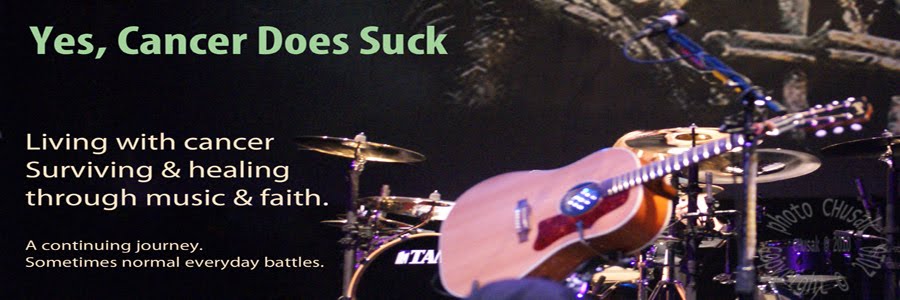The new “guidelines” for Breast Cancer Screening has been changed by our government. Welcome to the new National Health Care system. (we’ll wait till you’re good and festered with cancer so treatment just won’t be effective therefore withheld…. or with luck, you'll be dead before then and we won't have to worry about spending money on you over burdensome creatures.)
I saw this coming. Many of us saw this coming.
So many did not. Well here ya go. The first MAJOR DAGGER to our health…….
((they based this new guideline on bogus, outdated information))
I HAVE A NAME! I HAVE A FACE!!
Please Please PLEASE READ THIS in it's entirety. Our children are at stake!!
(((I will also be working toward stopping this action and hope you will stand with me!)))
November 16, 2009
"The recommendation to change screening is a huge step backwards," says Dr. Marisa Weiss.
To the Breastcancer.org community:
The U.S. Preventive Services Task Force recently recommended dramatic changes to current breast cancer screening guidelines. Breastcancer.org is strongly opposed to these recommendations.
The proposed new guidelines recommend starting regular screening mammograms at age 50, rather than at age 40 as current guidelines recommend. They recommend screening before age 50 only for women with a much-higher-than-average risk of breast cancer. The proposed new guidelines also call for mammograms to be done every other year instead of every year, as recommended by current guidelines.
The proposed new guidelines are based on research that looks at the effect of breast cancer screening on society from a public health perspective. This means the researchers were looking at how changing breast cancer screening guidelines would affect the overall public, rather than individual women. In proposing the changes, the task force members said that starting mammograms later in life and doing mammograms less often would save a large amount of money. It also means that about 3% more women would die from breast cancer each year. The task force members felt that the amount of money saved (from fewer mammograms and side effects of extra biopsies and treatment) was greater than the value of more lives saved (3% fewer women surviving breast cancer).
At Breastcancer.org, we are deeply troubled by both the analysis that led to these proposed guideline changes and the effect these proposed changes would have on the health and lives of women. Our specific concerns:
- The analysis was based on older mammography techniques, meaning the researchers mostly looked at results from film mammograms instead of digital mammograms.
- The analysis was based on some inaccurate assumptions about optimal treatment after breast cancer is diagnosed. For example, it assumed that women diagnosed with hormone-receptor-positive, early-stage breast cancer would receive and benefit from hormonal therapy but not chemotherapy, even though we know that many of these women do receive and benefit from chemotherapy after surgery. Inaccurate assumptions like this may have caused the researchers to underestimate the number of lives that would be lost should the proposed changes in screening be adopted.
- The analysis did not adequately consider the combined benefit of early detection (with current screening guidelines) and new treatments that have resulted in steadily improving survival rates in recent years. Screening cannot be looked at in isolation as a snapshot. Screening happens as we continue to improve both diagnosis and treatment. But we can’t treat what isn’t diagnosed.
- The proposed guideline changes would mean that many breast cancers would be diagnosed at a later stage, making it harder to become cancer-free. Later-stage diagnoses result in more women with metastatic disease (that has spread to other parts of the body) and more women with large or multiple cancers requiring mastectomy (too late for breast-conserving treatments).
- The proposed guideline changes would mean that younger women would be diagnosed later. Breast cancer in younger women tends to be more aggressive, so early diagnosis and treatment is more critical for them. It is the lives and futures of younger women that would be lost if the proposed changes are adopted.
Expressed as nameless, faceless numbers, the 3% decrease in breast cancer survival might seem like an acceptable trade-off when compared to the economic benefits of changing breast cancer screening policies. But breast cancer affects a very large number of women, so 3% of that number is not insignificant. The reality is that more women -- mothers, daughters, sisters, grandmothers, and aunts -- will die each year from breast cancer, which is neither reasonable nor acceptable.
We at Breastcancer.org encourage medical professionals and everyone affected in any way by breast cancer to raise their voices against these surprising and dramatic proposed changes in the guidelines for breast cancer screening. Our belief is that lives should be saved, not lost, and our commitment to you is that we will continue to strongly advocate for policies that support this fundamental mission.
Marisa C. Weiss, M.D.
President and Founder, Breastcancer.org
Director of Breast Radiation Oncology, Director of
Maxine Jochelson, M.D.
Director of Radiology
Evelyn H.
Professional Advisory Board, Breastcancer.org
Emily F. Conant, M.D.
Professor of Radiology, Chief of
Professional Advisory Board, Breastcancer.org
http://www.breastcancer.org/opinion/mammography_guidelines.jsp
I will be working toward organizing some kind of something to fight this!
Please stand stand with me!
Please if you know ANYONE affected by Breast Cancer, have them join and sign AGAINST new Mammography Guidlines.... http://community.breastcancer.org/
http://community.breastcancer.org/forum/110/topic/744011?page=8#post_1601243

No comments:
Post a Comment